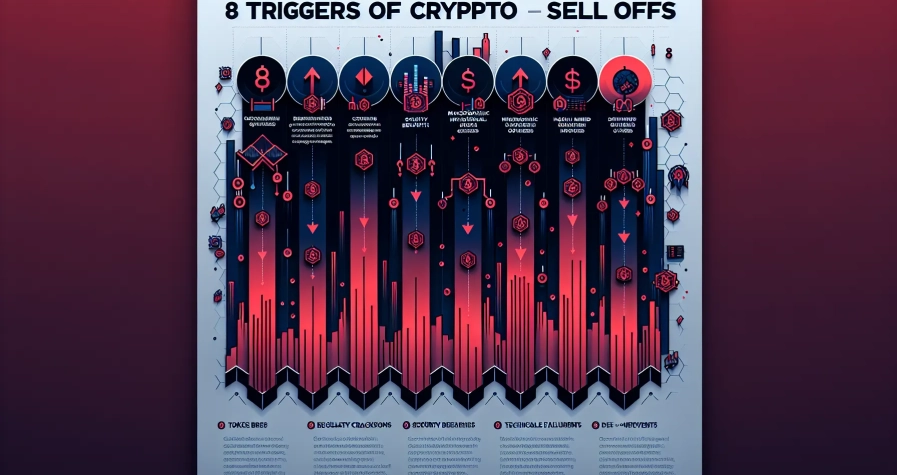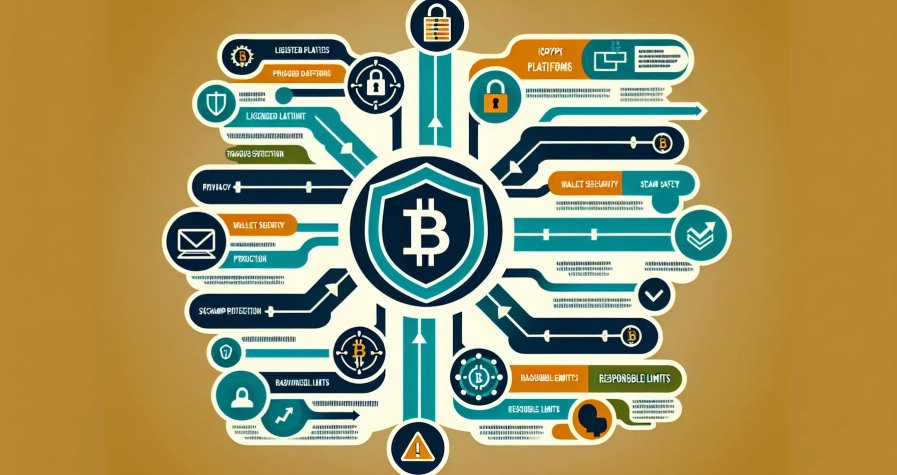Cryptocurrency has revolutionised digital entertainment, but for many, the high-stakes world of crypto casinos feels like a step too far. The volatility of crypto markets combined with casino odds can quickly drain digital wallets, leaving users searching for ways to enjoy blockchain technology without the significant financial risk. Fortunately, the crypto entertainment landscape has matured considerably, offering numerous alternatives that blend innovation, engagement, and skill-based rewards with substantially lower risk profiles.
From prediction markets where knowledge trumps luck, to play-to-earn gaming ecosystems that reward time and strategy, the options for crypto enthusiasts seeking entertainment have expanded dramatically. These alternatives don’t just offer lower risk, they often provide more engaging experiences, opportunities for skill development, and communities built around shared interests rather than gambling impulses. Whether one’s interested in testing their forecasting abilities, showcasing gaming prowess, or simply engaging with blockchain technology in novel ways, there’s likely an alternative that fits both their risk tolerance and entertainment preferences.
Key Takeaways
- Low-risk crypto entertainment alternatives prioritise skill-based rewards over pure chance, offering better long-term value than traditional crypto casinos with house-edge models.
- Prediction markets and fantasy sports platforms reward research and strategic thinking, allowing users to improve success rates through knowledge rather than relying on random outcomes.
- Play-to-earn gaming ecosystems enable players to earn cryptocurrency through gameplay skill and time investment, avoiding the gambling mechanics that characterise crypto casinos.
- NFT collecting, gamified staking, and social tipping platforms provide engaging crypto entertainment with minimal financial risk whilst fostering vibrant communities.
- Alternatives to crypto casinos offer transferable skills, transparent reward systems, and sustainable engagement models that enrich rather than deplete digital wallets.
Why Consider Low-Risk Crypto Entertainment?

The appeal of low-risk crypto entertainment extends well beyond simple financial prudence. Traditional crypto casinos operate on house-edge models that mathematically favour the platform over time, meaning sustained participation typically results in net losses for users. In contrast, low-risk alternatives often incorporate skill-based elements, knowledge application, or time investment as primary success factors rather than pure chance.
These alternatives also address the psychological concerns associated with gambling. The dopamine-driven feedback loops of casino games can lead to compulsive behaviour and financial difficulties, whilst skill-based platforms tend to foster more measured, strategic engagement. Users maintain greater control over outcomes through learning, practice, and well-informed choice-making rather than relying on random number generators.
From a practical standpoint, low-risk crypto entertainment frequently offers better long-term value propositions. Many platforms distribute rewards more equitably across participant bases, with some play-to-earn models even enabling users to generate modest income streams through consistent engagement. The transparent nature of blockchain technology also means participants can often verify reward distributions, odds, and platform economics, a level of transparency rarely found in traditional entertainment or gaming sectors.
Also, these alternatives typically foster more vibrant, collaborative communities. Rather than the isolating experience of spinning slots or playing against the house, users often engage with others who share similar interests, whether that’s predicting market movements, competing in fantasy sports leagues, or collaborating in blockchain gaming guilds. This social dimension adds depth to the entertainment value whilst naturally moderating the impulsive behaviour that high-risk gambling can encourage.
Crypto Prediction Markets and Fantasy Sports
Prediction markets and fantasy sports represent some of the most intellectually engaging alternatives to crypto casinos, rewarding research, analysis, and strategic thinking rather than blind luck.
How Prediction Markets Work with Cryptocurrency
Crypto prediction markets function as decentralised platforms where participants stake tokens on the outcomes of real-world events, from election results and sports matches to cryptocurrency price movements and cultural phenomena. Unlike casino games with predetermined odds, prediction markets operate on a peer-to-peer model where odds fluctuate based on collective participant sentiment, similar to stock exchanges.
Platforms such as Polymarket and Augur allow users to buy shares in outcome predictions, with shares paying out if the prediction proves correct. The blockchain infrastructure ensures transparency in outcome verification and automatic distribution of winnings through smart contracts. Because these markets aggregate collective intelligence, skilled analysts who conduct thorough research can identify mispriced predictions and generate returns based on superior information processing rather than luck.
The risk profile differs fundamentally from casino gambling. Whilst one can certainly lose their stake if predictions prove incorrect, the outcomes depend on real-world events that can be researched, analysed, and reasoned about. Participants improve their success rates through studying trends, understanding statistics, and developing forecasting expertise, transferable skills with value beyond the platform itself.
Skill-Based Fantasy Sports Platforms
Crypto-enabled fantasy sports platforms blend the traditional appeal of fantasy leagues with blockchain transparency and cryptocurrency rewards. Participants build virtual teams from real athletes, earning points based on actual performance statistics. Success requires sports knowledge, statistical analysis, and strategic roster management rather than the pure chance that defines casino games.
Platforms like Sorare have pioneered the integration of NFT player cards with fantasy sports competition, creating scarcity and true ownership of digital assets. Users trade, collect, and deploy player cards in competitions, with performance-based rewards distributed in cryptocurrency or valuable NFTs. The play continues throughout sports seasons, providing extended entertainment value from a single entry investment.
The skill ceiling in fantasy sports is substantially higher than chance-based gambling, with dedicated participants able to maintain consistent winning percentages through superior knowledge and analysis. Communities form around strategy discussions, player analysis, and trade negotiations, adding social dimensions that enhance the entertainment value whilst keeping financial risk manageable through controlled entry fees and transparent competition structures.
Blockchain-Based Gaming and Play-to-Earn
The intersection of blockchain technology and gaming has spawned entirely new entertainment categories where players earn cryptocurrency through gameplay rather than wagering it in casino-style games.
NFT Gaming Ecosystems
NFT gaming ecosystems such as Axie Infinity, Gods Unchained, and The Sandbox have demonstrated that blockchain games can provide genuine entertainment whilst allowing players to earn and own in-game assets with real-world value. Unlike traditional games where items remain locked in proprietary systems, NFT-based games grant players true ownership of characters, equipment, land, and other digital assets that can be traded on open markets.
These ecosystems typically require initial investments to acquire starting assets, such as Axie creatures or land parcels, but the gameplay itself doesn’t involve gambling mechanics. Instead, players engage in strategic battles, resource management, creative building, or other skill-based activities. Earnings come from tournament prizes, asset appreciation, resource gathering, or marketplace trading rather than winning against house odds.
The risk profile centres more on market volatility and time investment than gambling losses. Players who engage consistently and develop skills can often recover initial investments and generate ongoing returns, though market conditions significantly impact asset values. The entertainment value derives from actual gameplay mechanics rather than the psychological manipulation inherent in casino design, making the experience more sustainable and less prone to compulsive behaviour.
Play-to-Earn Models That Reward Skill
Play-to-earn (P2E) models have evolved beyond simple NFT ownership to incorporate sophisticated reward systems that value player skill, time investment, and community contribution. Games like Splinterlands reward strategic card-battle prowess, whilst metaverse platforms compensate users for creating content, hosting events, or developing virtual real estate.
These models fundamentally differ from crypto casinos by aligning player and platform incentives. Rather than extracting value from losing bets, P2E platforms benefit when active user bases increase token utility and ecosystem value. Players earn through genuine contribution, whether that’s entertaining others, creating valuable content, or demonstrating gaming skill, rather than hoping for favourable odds.
The low-risk nature stems from control over participation intensity. Players can engage casually without significant financial commitment, gradually building assets and skills over time. Those seeking higher returns can invest more time, develop greater expertise, or take on community leadership roles. Unlike casino gambling where losses can spiral quickly, P2E participation typically involves controllable time investment with earnings that, whilst variable, rarely result in catastrophic financial loss.
Social Crypto Platforms and Trivia Apps
Social platforms incorporating cryptocurrency rewards offer entertainment through knowledge demonstration and community engagement rather than financial wagering.
Crypto-Powered Quiz and Trivia Competitions
Trivia platforms such as Coinbase Earn and various blockchain-based quiz apps reward users with cryptocurrency for answering questions correctly. These platforms serve dual purposes, educating participants about blockchain technology, cryptocurrencies, and related topics whilst distributing tokens as incentives. The financial risk is essentially zero, as participation is typically free with rewards coming from platform budgets or sponsoring projects.
The entertainment value comes from testing knowledge, learning new information, and competing against others in some implementations. Unlike casino games where the house always maintains an edge, trivia platforms often guarantee rewards for participation or correct answers, making them purely additive to one’s crypto holdings rather than extractive.
Some platforms have evolved beyond simple quiz formats to incorporate live trivia competitions where participants compete in real-time for cryptocurrency prize pools. These events combine the social excitement of live competition with the accessibility of mobile gaming, creating engaging experiences without requiring financial risk from participants.
Social Tipping and Content Engagement Platforms
Decentralised social platforms like Lens Protocol applications and crypto-integrated forums enable users to earn cryptocurrency through content creation, curation, and community engagement. Users tip creators with cryptocurrency for valuable posts, insightful comments, or entertaining content, creating micro-earning opportunities based on social contribution rather than gambling.
Platforms such as BitClout (now DeSo) pioneered the concept of creator coins, where supporters can invest in individual content creators, with coin values reflecting creator popularity and influence. This transforms social media engagement into a form of entertainment with potential financial upside, but based on community building and content quality rather than chance.
The risk remains minimal because participation doesn’t require upfront investment, users build followings and earn tips through genuine contribution. Those who do invest in creator tokens or platform currencies make decisions based on creator track records and community dynamics rather than rolling dice, making it fundamentally different from casino-style gambling. The entertainment comes from community participation, creative expression, and supporting creators one values rather than the hollow thrill of gambling mechanics.
Crypto Staking and Yield Entertainment Options
Staking platforms have evolved beyond simple yield generation to incorporate gamification elements that transform passive investment into interactive entertainment.
Gamified Staking Platforms
Innovative platforms have begun incorporating game-like elements into cryptocurrency staking, creating entertainment value from what was traditionally a passive activity. Platforms might offer staking competitions where participants vie for bonus rewards based on staking amounts, duration, or platform engagement. Some carry out achievement systems, leaderboards, or community challenges that transform yield farming into a more engaging experience.
Yield optimisation itself has become a form of entertainment for some crypto enthusiasts, who research protocols, analyse risk-reward ratios, and strategically move assets to maximise returns. Whilst this involves financial risk from market volatility and smart contract vulnerabilities, it differs fundamentally from casino gambling because outcomes depend on market dynamics, protocol performance, and strategic decision-making rather than odds designed to favour the house.
Platforms like Pancake Bunny and various DeFi protocols have introduced lottery-style elements where stakers receive automatic entries into prize draws without additional cost, their staked assets continue earning standard yields whilst providing bonus entertainment through periodic drawings. This combines the psychological appeal of potential windfalls with the security of preserved principal and ongoing yield generation.
The risk profile of gamified staking depends largely on the underlying protocols and market conditions. Users who stake in established protocols with audited smart contracts face primarily market risk rather than gambling losses. The entertainment comes from strategic decision-making, community competition, and the satisfaction of optimising returns, intellectual engagement rather than the manufactured excitement of casino games. For risk-averse users, staking in major cryptocurrencies through reputable platforms offers entertainment value through gamification whilst maintaining relatively conservative risk profiles compared to casino gambling or speculative trading.
NFT Collectibles and Virtual Experiences
The NFT ecosystem has matured beyond speculative trading to offer genuinely entertaining collecting experiences and virtual events that provide value independent of financial returns.
Collecting digital art, music NFTs, or cultural artefacts through blockchain technology appeals to the same impulses that drive physical collecting, but with added features like verified provenance, fractional ownership possibilities, and global marketplaces. Platforms such as OpenSea, Foundation, and Rarible host diverse collections ranging from generative art projects to music releases from established artists. The entertainment comes from discovering new artists, curating personal collections, and participating in creative communities rather than gambling on outcomes.
The risk with NFT collecting differs substantially from casino gambling. Whilst NFT values can certainly decline, collectors who focus on artistic merit, cultural significance, or personal enjoyment rather than speculative returns treat purchases more like traditional art collecting. The blockchain infrastructure adds transparency about provenance and ownership history, addressing authenticity concerns that plague traditional collectibles markets.
Virtual experiences delivered through NFTs have created entirely new entertainment categories. NFT ownership might grant access to exclusive virtual concerts, metaverse events, private community spaces, or ongoing content from creators. These utility-focused NFTs derive value from the experiences they unlock rather than speculative price appreciation, making them comparable to purchasing event tickets or club memberships rather than gambling.
Platforms hosting virtual events in blockchain environments like Decentraland and Cryptovoxels offer immersive experiences where participants attend concerts, art exhibitions, educational sessions, or social gatherings. Participation might require cryptocurrency for transactions or NFT ownership for access, but the entertainment value comes from the experiences themselves rather than financial risk-taking.
For those seeking low-risk crypto entertainment, approaching NFTs as cultural participation rather than investment vehicles provides a sustainable engagement model. Setting reasonable budgets for collecting, focusing on artists and projects one genuinely appreciates, and viewing purchases as entertainment expenses rather than financial speculation maintains the enjoyment whilst controlling risk, similar to how one might budget for concerts, books, or other cultural consumption.
Conclusion
The maturation of blockchain technology has delivered a rich ecosystem of entertainment options that don’t require the financial risk inherent in crypto casinos. From prediction markets that reward analysis and research to play-to-earn games that compensate skill and time investment, these alternatives offer genuine entertainment whilst maintaining considerably more favourable risk profiles.
What distinguishes these options from traditional gambling isn’t merely lower financial risk, it’s the fundamental shift toward skill-based outcomes, community engagement, and value creation rather than value extraction. Participants develop transferable skills, build social connections, and often contribute to communities rather than simply feeding algorithms designed to take their money.
For crypto enthusiasts seeking entertainment, the key lies in matching personal interests and risk tolerance with appropriate platforms. Those who enjoy analysis might gravitate toward prediction markets or yield optimisation, whilst creative individuals might find fulfilment in NFT collecting or metaverse participation. Gaming enthusiasts can explore play-to-earn ecosystems, and social butterflies might prefer content platforms with tipping mechanisms.
The blockchain entertainment landscape will undoubtedly continue evolving, but the current alternatives already provide compelling options for those who want to engage with cryptocurrency in entertaining ways without exposing themselves to casino-level risk. By focusing on skill development, community participation, and genuine interest rather than gambling impulses, users can enjoy sustainable, engaging crypto entertainment that enriches rather than depletes their digital wallets.
Frequently Asked Questions
What are the best alternatives to crypto casinos for low-risk entertainment?
The best alternatives include prediction markets like Polymarket, play-to-earn games such as Axie Infinity, crypto fantasy sports platforms like Sorare, gamified staking, NFT collecting, and trivia apps. These options reward skill, knowledge, and time investment rather than pure chance.
How do crypto prediction markets differ from traditional casino gambling?
Crypto prediction markets reward research and analysis rather than luck. Users stake tokens on real-world event outcomes with peer-to-peer odds that fluctuate based on collective sentiment. Success depends on superior information processing and forecasting expertise, not predetermined house odds.
Can you earn cryptocurrency without gambling in casinos?
Yes, numerous methods exist including play-to-earn gaming, crypto trivia competitions, social tipping platforms, gamified staking, and content creation on blockchain social networks. These reward skill, knowledge, community engagement, or time investment without requiring traditional gambling.
What are play-to-earn games and how do they reduce risk?
Play-to-earn games reward players with cryptocurrency for gameplay, skill development, and community contribution rather than wagering. Players control their time investment and earn through strategic gameplay, asset trading, or content creation, avoiding the catastrophic losses possible in casino gambling.
Are NFT collectibles a safer crypto entertainment option than gambling?
When approached as cultural participation rather than speculation, NFT collecting offers lower risk. Focusing on artistic merit and personal enjoyment, with reasonable budgets, makes it comparable to traditional art collecting or entertainment expenses rather than casino-style gambling.
How does gamified crypto staking work as entertainment?
Gamified staking platforms add game-like elements such as competitions, leaderboards, and achievement systems to yield generation. Users earn standard returns on staked assets whilst enjoying strategic optimisation and community challenges, combining entertainment with relatively conservative risk profiles.








